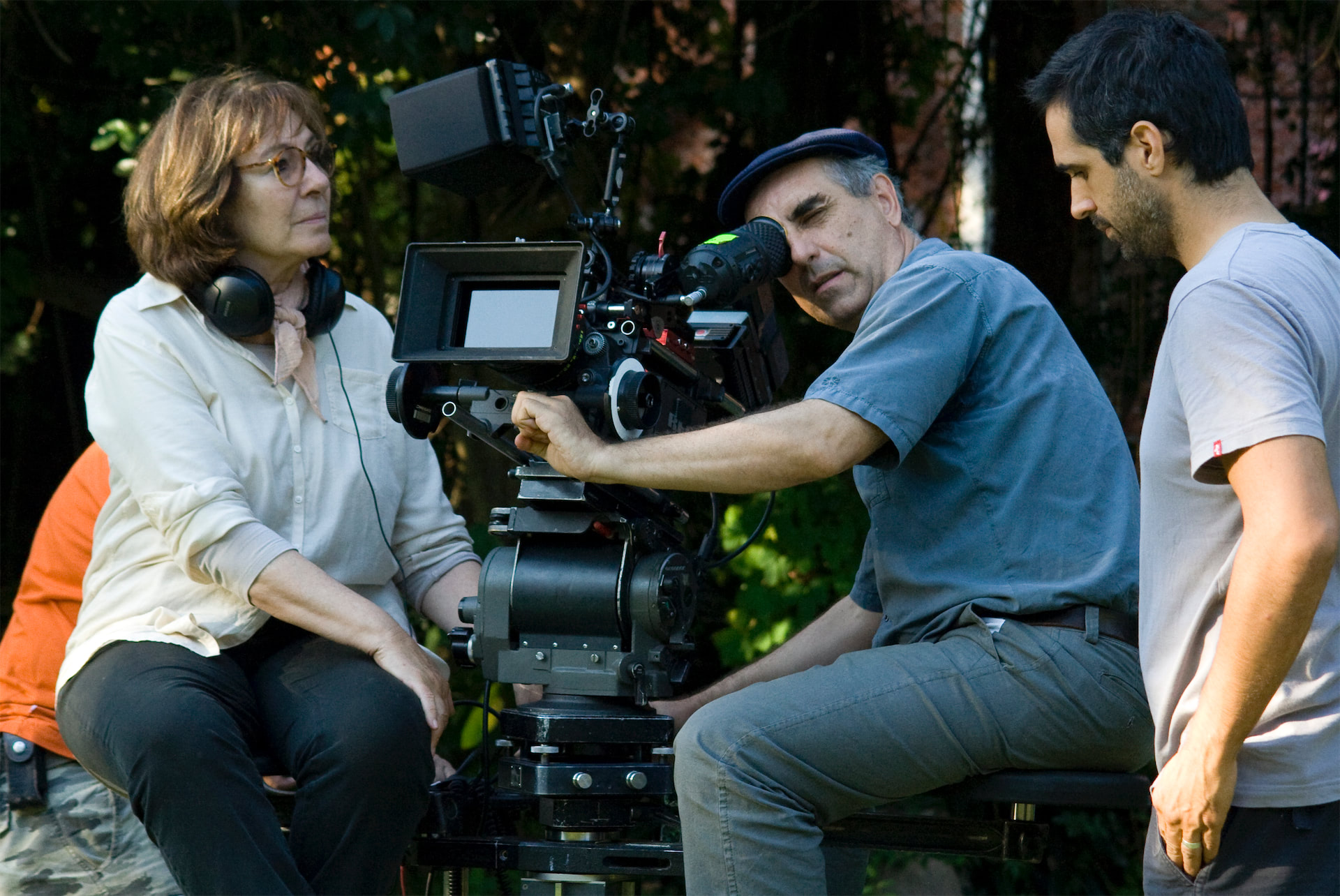Jeanine Meerapfel is a filmmaker, screenwriter and producer. She was born in Buenos Aires, Argentina and now lives in Berlin.
Born in Buenos Aires, she attended journalism school there and then worked in Argentina as an editor and freelance journalist. From 1964 to 1968 she studied at the Institute for Film at the Ulm Academy of Design under Alexander Kluge and Edgar Reitz. In 1980 she made her first feature film Malou. Numerous award-winning documentaries and feature films followed, such as Im Land meiner Eltern (1981), Amigomío (1995), and many others. From 1990 to 2008, Jeanine Meerapfel was a professor of film/television at the Academy of Media Arts in Cologne. At the beginning of her tenure in Cologne, she led the art academy as spokesperson of the founding committee. In 2008, Neue Visionen Medien released an edition of her films on DVD. In 2012 her film Der deutsche Freund, an Argentine-German co-production, was released. In 2015 she produced the audiovisual essay Confusion/Diffusion together with Floros Floridis. A retrospective of her films was recently presented in 2018 by Bundesplatz Kino in Berlin and in early 2019 by Cinemateca de Cuba in Havana. She also produced, again in collaboration with Floros Floridis, the audiovisual essay Moving Sand / Topos with premiere on May 29, 2019 and, after several international stops, it was re-released at the Akademie der Künste in Berlin on November 9, 2019) . In December 2019, she was president of the jury of the 41st Festival Internacional del Nuevo Cine Latinoamericano in Havana. In 2020, she was awarded the Federal Cross of Merit 1st Class for her accomplishments as a filmmaker and author, as well as her commitment to human rights, freedom of expression and the equal diversity of cultures. In the fall of 2020, she initiated the “European Alliance of Academies,” an alliance of initially 60 art academies and cultural institutions from countries in the European Union, the United Kingdom, and Norway, that stands together for the freedom of art (www.allianceofacademies.eu). In February 2021, the German Federal Association of Directors (BVR) appointed the filmmaker honorary president.
Jeanine Meerapfel has been a member of the Academy of Arts, Film and Media Arts Section since 1998. From 2012 to 2015, she was deputy director of this section. In 2015, she was elected President of the Academy of Arts. She was re-elected in May 2018.
Prizes and Awards (selection): 1981 Prize of the International Film Critics FIPRESCI in Cannes for Malou; 1985 Prize of the German Film Critics for Die Kümmeltürkin geht; Federal Film Award 1989 and Argentine Oscar nomination for La Amiga; 2000 Artist Award of the State of North Rhine-Westphalia; 2001 Special Award at the Argentine Festival Mar del Plata for Anna’s Summer; 2012 Honorary Award for her life achievements at the International Film Festival Innsbruck.
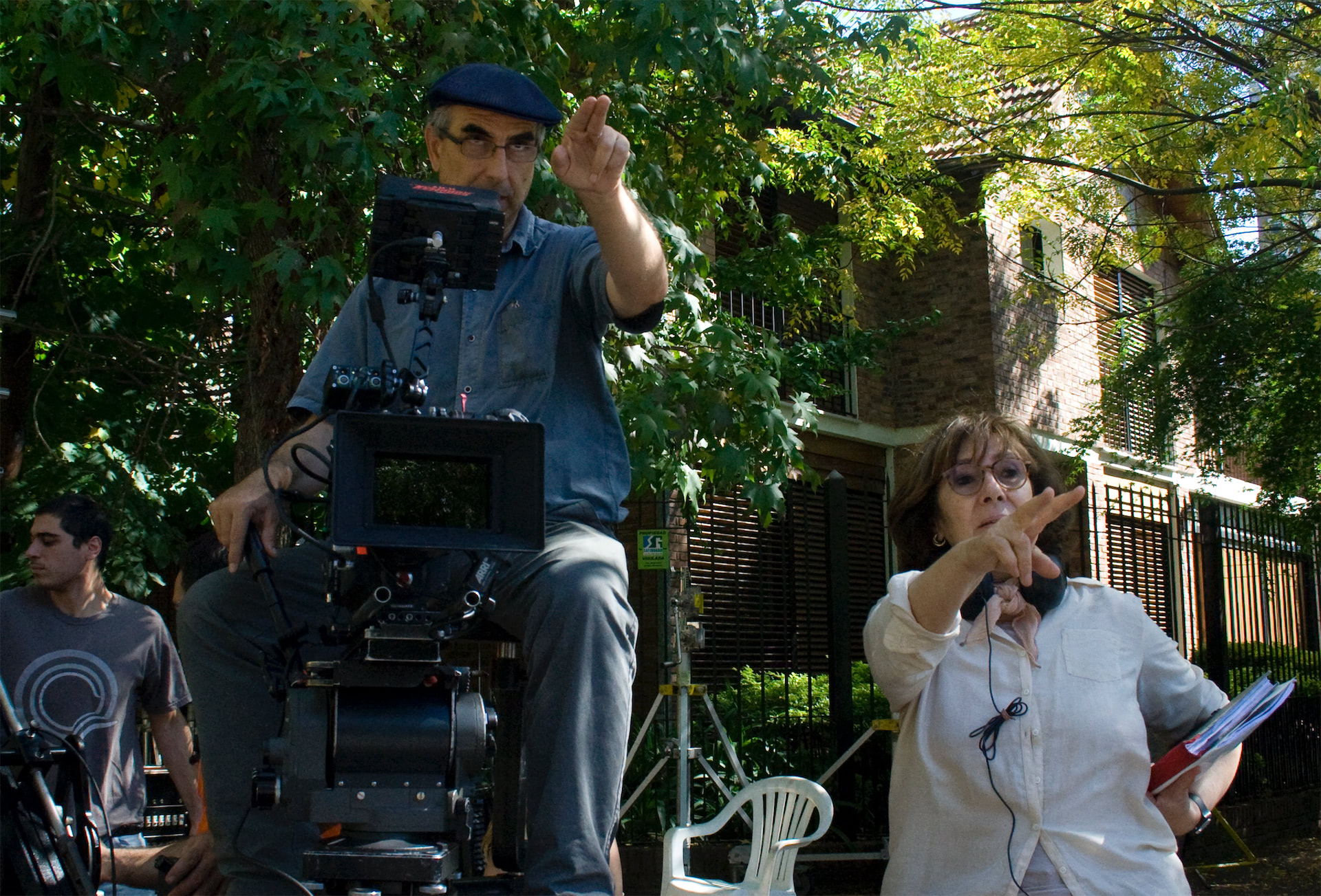

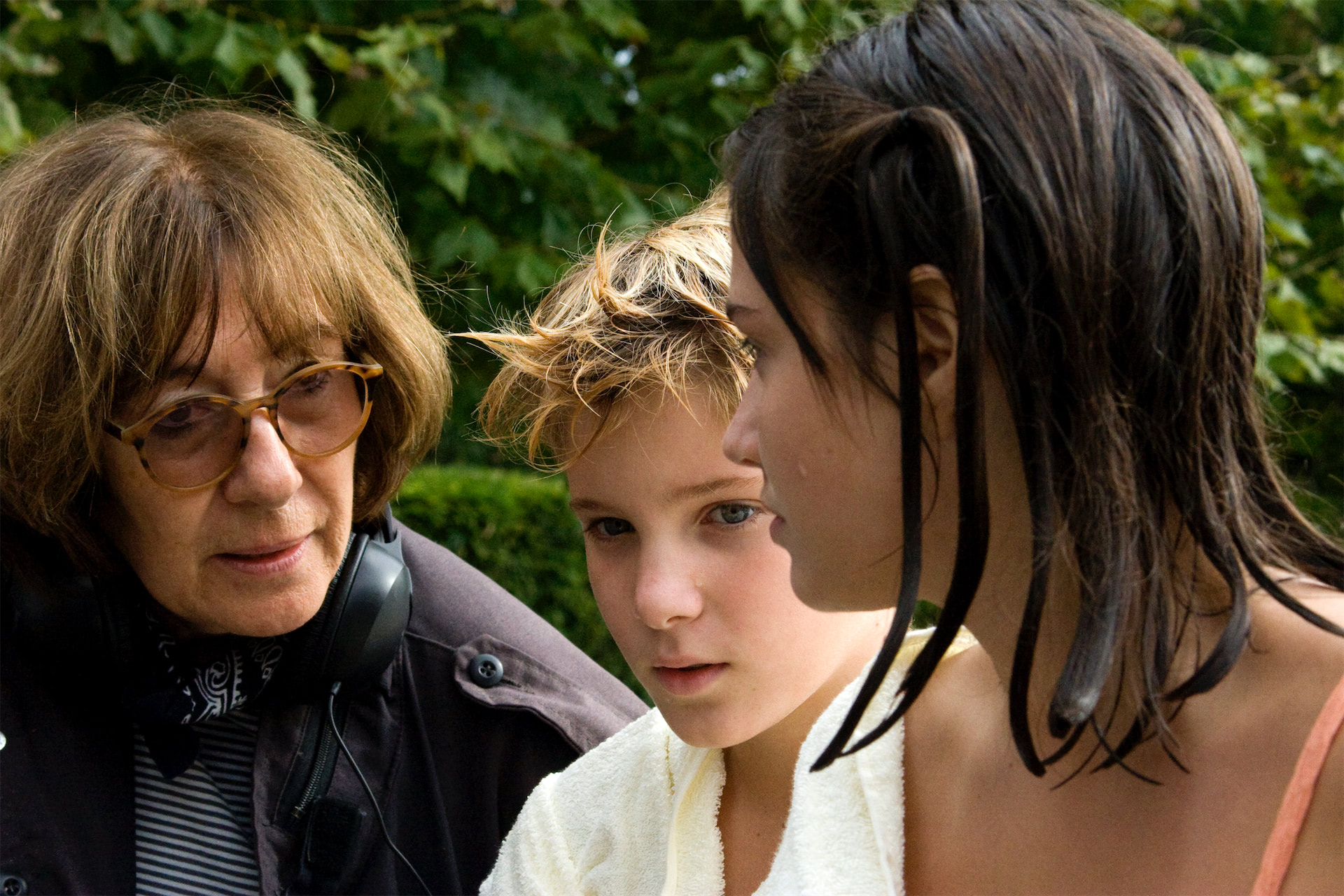
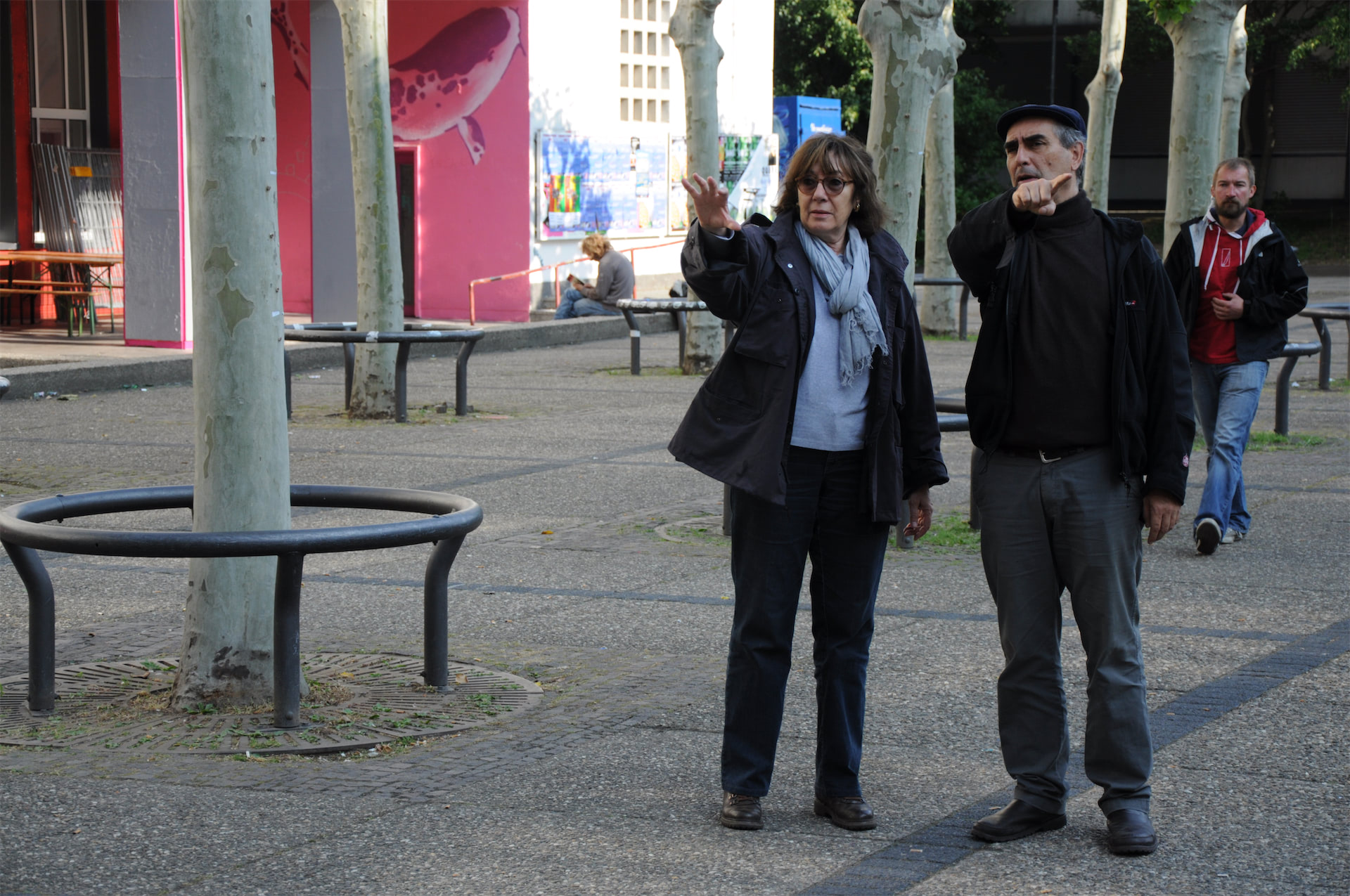
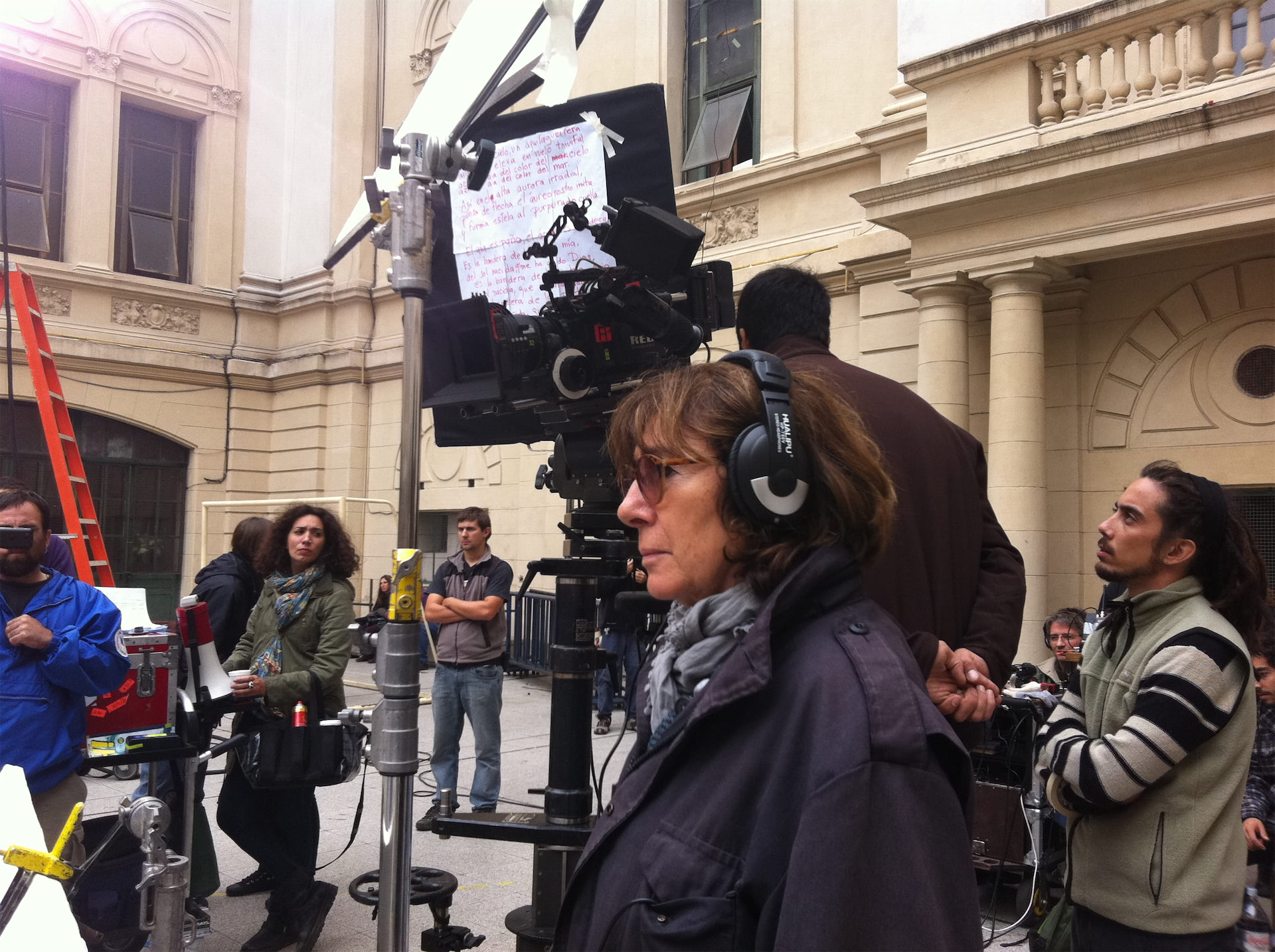

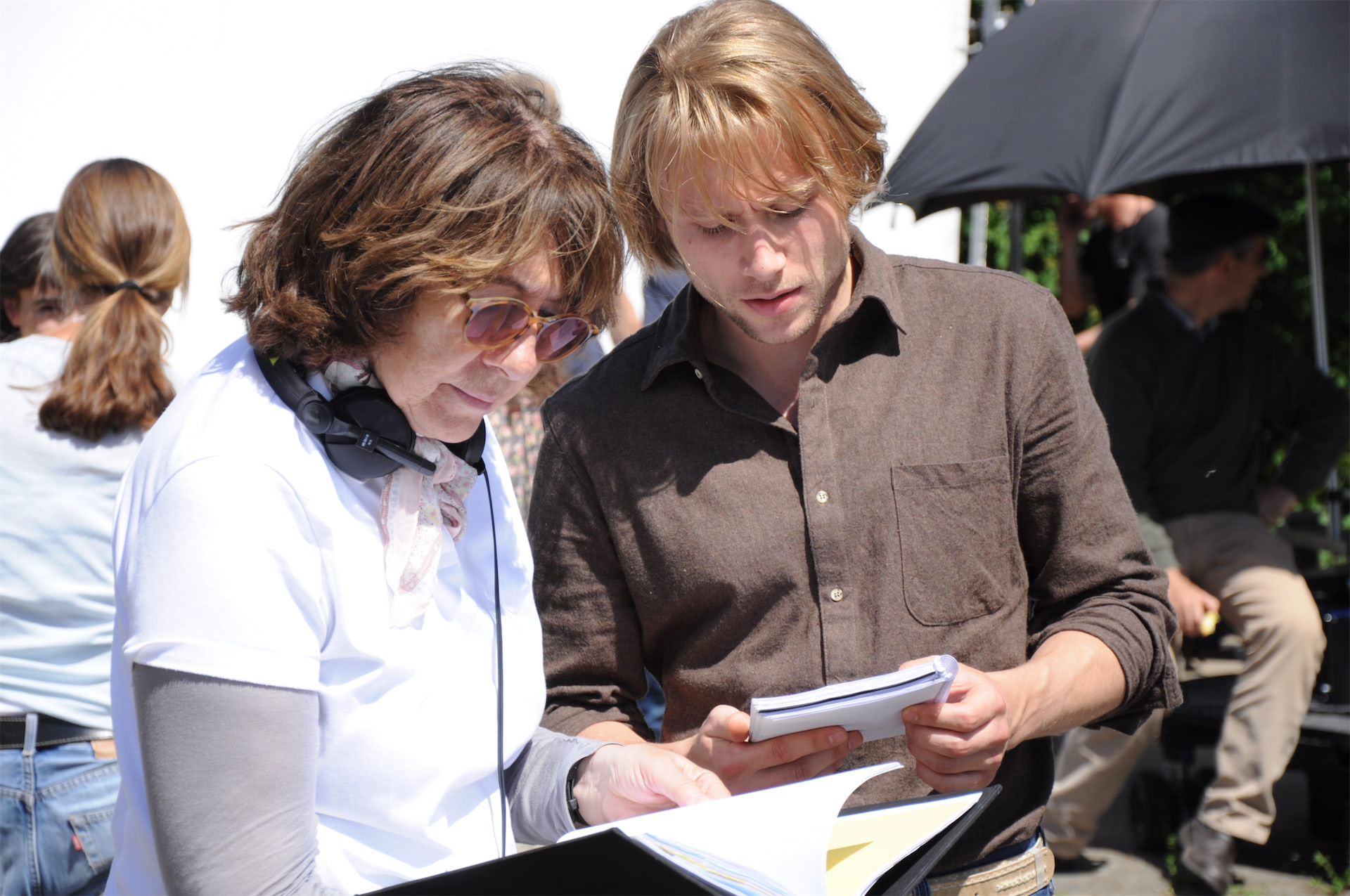

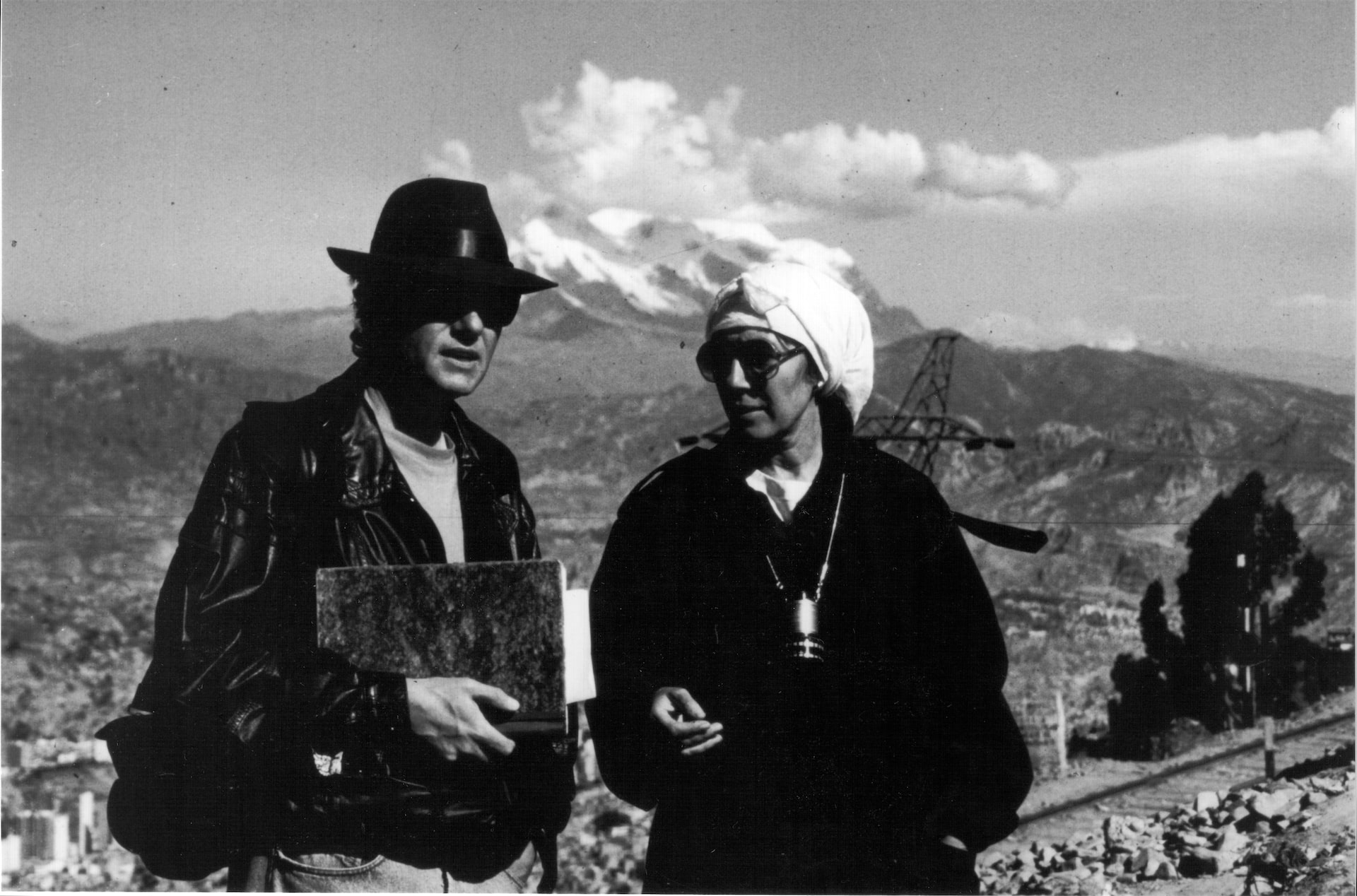

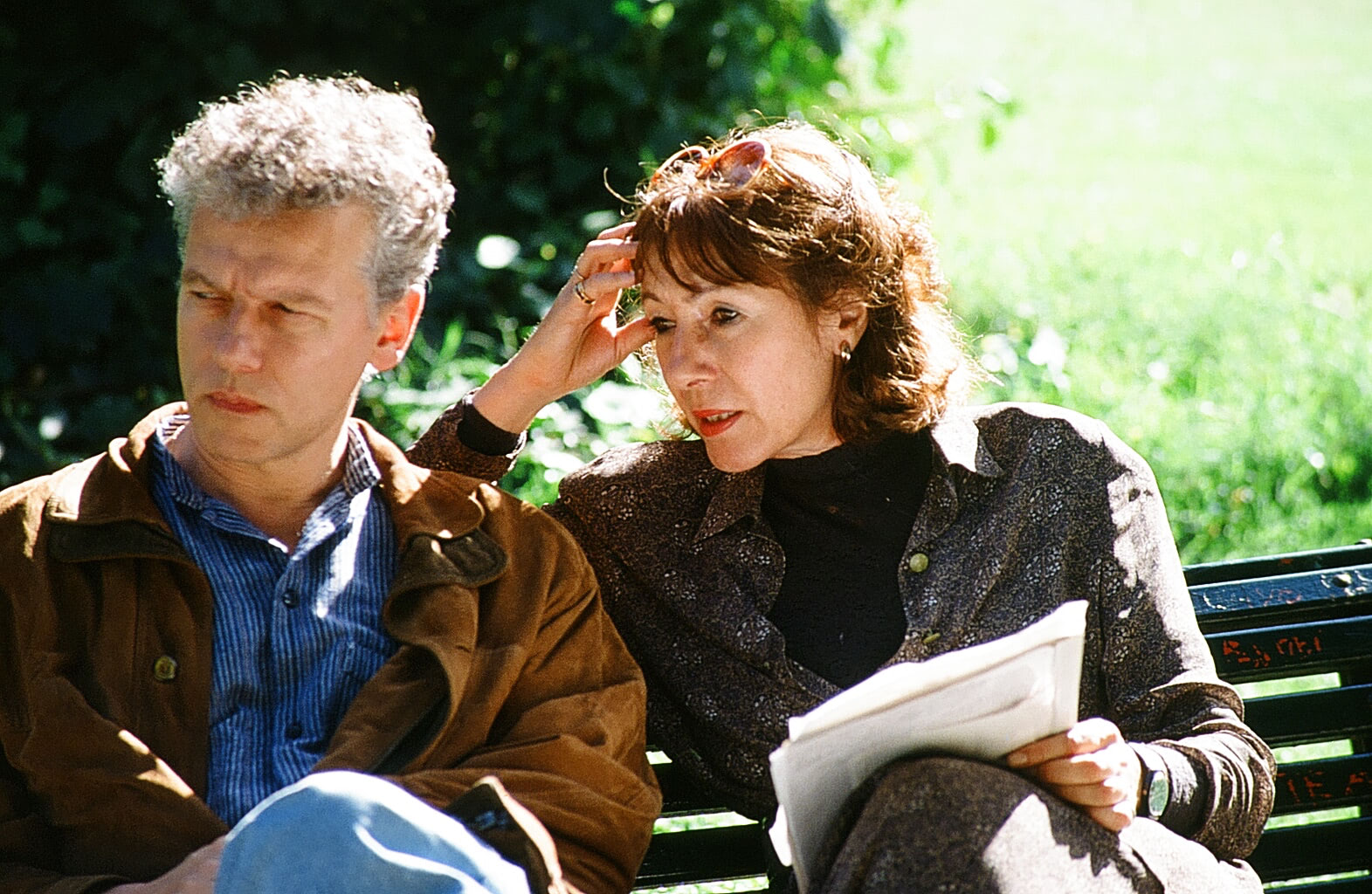
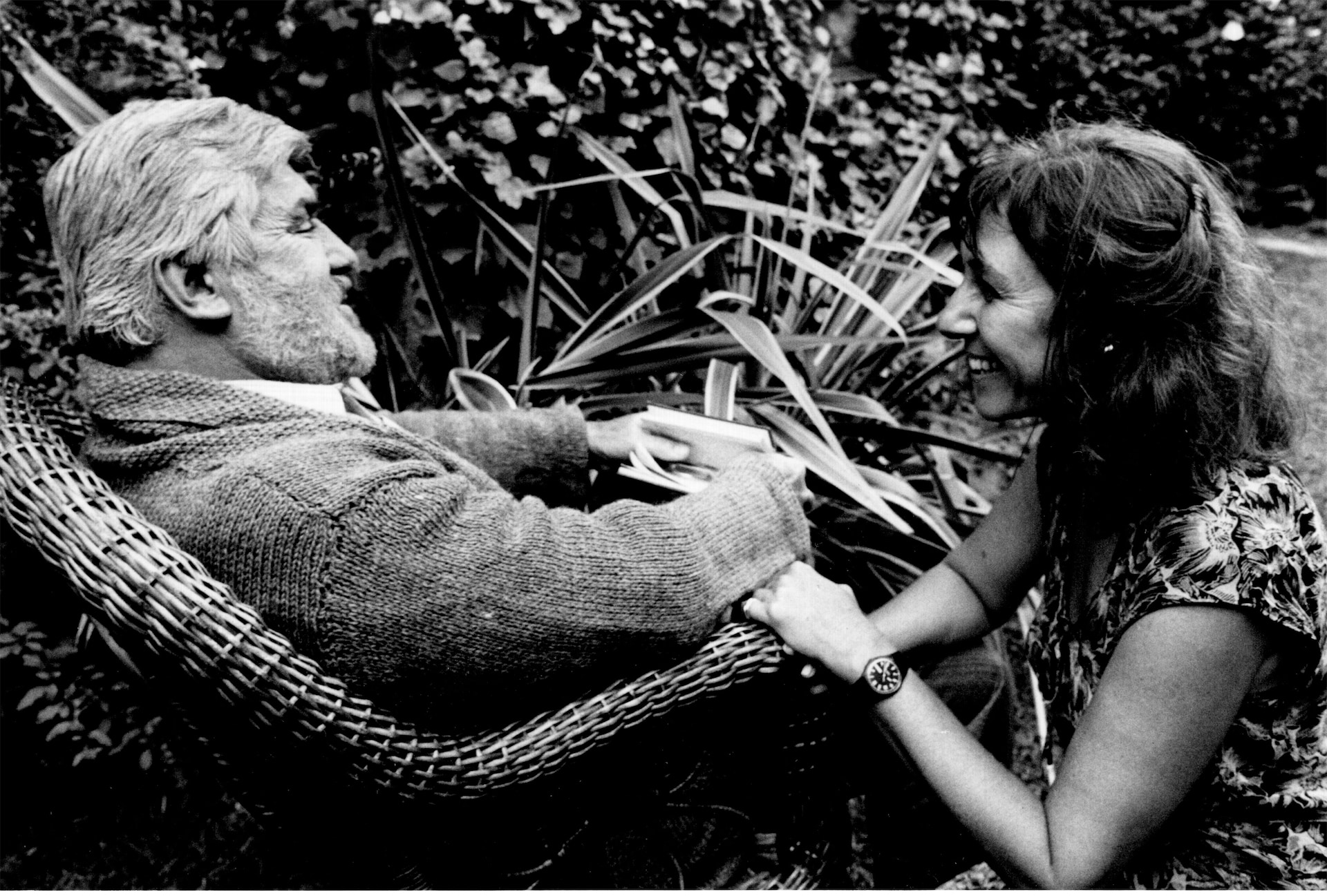
Biography
1961 – 1964 | School of Journalism in Buenos Aires, editor and freelance journalist
1964 – 1968 | Studied at the Institute for Film Design at the Hochschule für Gestaltung Ulm with Alexander Kluge & Edgar Reitz
since 1968 | Screenwriter and film director
1970 – 1980 | Freelance film critic for various print media
1990 – 2008 | Professor in the field of film/television at the Academy of Media Arts Cologne, among other things director of the Academy as spokesperson of the founding committee
2012 – 2015 | Vice-Director of the Film Section of the Akademie der Künste Berlin
since 2015 | President of the Akademie der Künste Berlin
2020 | Initiator of the “European Alliance of Academies”, an association of initially 60 art academies and cultural institutions from countries of the European Union, from Great Britain and Norway, which jointly stands up for the freedom of art (www.allianceofacademies.eu).
Memberships
since 1998 | Member of the Akademie der Künste Berlin
since 1990 | Member of the European Film Academy
Honors, prizes and awards (selection)
1981 | International Film Critics’ Prize FIPRESCI in Cannes for „Malou“
1985 | German Film Critics Award for “The Kümmeltürkin Goes”
1989 | Federal Film Award 1989 and Argentinean Oscar nomination for “La Amiga”
2000 | Female Artist Award of the State of North Rhine-Westphalia in the field of directing
2001 | Special Award at the Argentinean Festival Mar del Plata for “Anna’s Summer”
2012 | Honorary Award at the Innsbruck Film Festival for the body of work
2020 | Awarded the Federal Cross of Merit 1st Class for her achievements as a filmmaker and author as well as her commitment to human rights, freedom of expression and the for the equality of cultural diversity
2021 | Appointment as Honorary President of the German Federal Association of Directors (BVR)
Work exhibitions
2002 | Madrid
2018 | Bundesplatz Cinema in Berlin
2019 | Cinemateca de Cuba in Havana
Jury work (selection)
1984 | Berlinale
2009 | Biberach
2019 | President of the Jury of the 41st Festival Internacional del Nuevo Cine Latinoamericano in Havana
Bibliography
Texts (selection) about Anna’s Summer
Arévalo, Agustín: “Historias de la memoria”, Revista: 17° Festival Internacional de Cine de Mar del Plata, 13 de marzo de 2002.
Cendrós, Teresa: “Ángela Molina exhibe una bella madurez en ‘El verano de Anna'”,El País, Madrid, 28 de junio de 2002.
Cockrell, Eddie: “Anna’s Summer”, Variety, New York, September 17-23, 2001.
Fründt, Bodo: “Wie frisch gepflückt”, Süddeutsche Zeitung, Munich, May 29-30, 2002, No. 122, p. 14.
Krull, Volker: “Interview: Jeanine Meerapfel”, Film & TV Kameramann 1/ 2002, 51st year, p.8-19.
Kühn, Heike: “Niemand ist eine Insel”, Frankfurter Rundschau, Frankfurt am Main, 11.01.2002.
Müller, Matthias: “Opening the Heart to Imagination and Emotion,” Mannheimer Morgen, Mannheim,11/13/2001.
Pohlmann, Sonja: “Ganz reale Geister unter der Sonne Griechenlands”, weekly newspaper, Cologne, 01.01.2002.
Ranzani, Oscar: “Una explosión de talento”, Página /12, Buenos Aires, 25 de marzo de 2002.
Seidel, Hans-Dieter: “Die Freiheit der Erinnerung,” Frankfurter Allgemeine Zeitung, Frankfurt am Main, January 9, 2002,No. 7, p. 42.
Seidel, Hans-Dieter: “A departure that will not be another farewell”, International Herald Tribune, New York, January 15, 2002.
Seitz, Andrea: “Exil und Heimat,” Tip 1/2002, Berlin, January 2002.
Sterneborg, Anke: “Annas Sommer”, epd-Film 1/2002, Frankfurt am Main, January 2002, p. 40.
Torreiro, M.: “Volver a la vida,” El País, Madrid, 12 de julio de 2002.
“The ghosts of place,” Berliner Zeitung, Berlin, January 10, 2002.
Texts (selection) about Jeanine Meerapfel and her films
Bartels, Ulrike: “Kampf und Poesie,” Prinz, Cologne, December 1991, p. 16.
Bock, Hans-Michael (ed.): “Jeanine Meerapfel – Filmemacherin,” CineGraph. Lexikon zum deutschsprachigen Film, vol. 3, D 1, edition text+kritik, Munich, 1984 (loose-leaf collection).
Braun, Rainer: “Fear as a Form of Oppression. Interview with filmmaker Jeanine Meerapfel,” Die Wahrheit, Berlin, Feb. 17, 1989.
Corboud, Patricia: “Jeanine Meerapfel’s new film draws strength from vulnerability,” The German Tribune, 15.05.1992 (first publication [German] in: Kölner Stadt-Anzeiger, Cologne, 30.04.1992).
Elías, Carlos Francisco: “Queremos tanto a Jeanine! (Berlín no cree en lágrimas),” Listín Diario, Santo Domingo, 02.04.1983.
García Oliveri, Ricardo: “El desarraigo en la obra de Jeanine Meerapfel,” TIEMPO Argentino, Buenos Aires, 04/03/1985 (about: “The Kümmeltürkin Goes” and “In the Land of My Parents”).
García Oliveri, Ricardo: “El exilio que no dá laureles,” Clarín, Buenos Aires, 09.06.1995 (about: “Amigomío”).
Geidel, Cornelia: “Remembering against Forgetting: Jeanine Meerapfel – Portrait of a Political Filmmaker,” M.A. thesis, Faculty of Philosophy II, Friedrich-Alexander-Universität Erlangen-Nürnberg, 1996.
Girven, Tim: “When memory speaks,” Index on Censorship, London, No. 3/1991.
Grob, Norbert: “Tragödie einer kämpferischen Frau,” DIE ZEIT, Hamburg, Sept. 26, 1991 (about: “La Amiga”).
Grob, Norbert: “A long night’s journey into the day”, DIE ZEIT, Hamburg, 09.06.1995 (about: “Amigomío”).
Hippen, Wilfried: “Ein internationaler Gringo”, taz Bremen, Bremen, 22.06.1995 (about: “Amigomío”).
Hochheiden, Gunar: “Detektivin in eigener Sache – Jeanine Meerapfel’s remarkable first feature film ‘Malou'”, Frankfurter Rundschau, Frankfurt am Main, 23.03.1981.
Insdorf, Annette: “Indelible Shadows. Film and the Holocaust,” First Vintage Books Edition, New York 1983, pp. 158 – 161.
von Jhering, Barbara: “Ein bißchen deutsch. ‘Die Kümmeltürkin geht’,” DER SPIEGEL, Hamburg, 06.05.1985.
Ludin, Malte: “Die Kümmeltürkin geht,” Frankfurter Rundschau, Frankfurt am Main, 04/30/1985.
Magee, Shawn S.: “Cross cultural examination”, JUMP CUT, USA, No. 30, pp. 63 – 64 (about: “Malou” and “In the Land of My Parents”).
Meier, Rainer: “Film: In the country of my parents”, sozialmagazin, Basel, December 1981, issue 12.
Monge, Carlos: “Necesité filmar aquí para saber quien soy,” Siete Días, Buenos Aires, Nº 1132, April 20-26, 1989.
Monteagudo, Luciano: “Una argentina que se fue a Alemania,” El periodista de Buenos Aires, Buenos Aires, 12-18.04.1985.
Morrone, John: “The Myth and Melodrama of Jeanine Meerapfel,” The New York Native, New York, January 1984 (about “Malou”).
Petz, Thomas: “The Adventures of Identity. Jeanine Meerapfel’s Feature Film Debut ‘Malou’,” Süddeutsche Zeitung, Munich, March 28/29, 1981.
Plotkin, Janis/Libresco, Caroline/Feiger, Josh (eds.): “Independent Jewish Film. A Resource Guide,” San Francisco Jewish Film Festival, San Francisco 1996, pp. 82 f., 88.
Pönack, Hans-Ulrich: “‘Heimat nicht als Land’. Filmmaker Jeanine Meerapfel on her film ‘Malou'”, tip, Berlin, No. 6 / 81.
Pönack, Hans-Ulrich: “Abschied von Gestern,” tip, Berlin, No. 8 / 85 (about: “Die Kümmeltürkin geht”).
Rauh, Inge: “Zwischen zwei Welten. Exile, Emigration and Filmmaking: A Conversation with Director Jeanine Meerapfel in Nuremberg,” Nürnberger Nachrichten, Nuremberg, 03.03.1995.
Reitz, Edgar: “Bilder in Bewegung. Essays – Conversations on Cinema,” Rowohlt Taschenbuch Verlag GmbH, Reinbek bei Hamburg, 1995, pp. 103 – 108, 304.
Rhode, Carla: “The Mothers of the Plaza de Mayo. Jeanine Meerapfel’s Film ‘La Amiga’,” Der Tagesspiegel, Berlin, Sept. 28, 1991.
Riedle, Gabriele: “Tango auf der Siegessäule,” DIE ZEIT, Hamburg, No. 41, 03.10.1991(about: Jeanine Meerapfel and her films).
Schäfer, Michael: “Power of Despair. Jeanine Meerapfel’s film ‘La Amiga’ opens at the Lumière”,Göttinger Tageblatt, Göttingen, 14.12.1991.
Schneider, Roland: “Jeanine Meerapfel. Les multiples visages de la diaspora,” CinémAction, Ed. du Cerf, Paris 1986, pp. 213 – 219.Schneider, Roland: “Histoire du cinéma allemand,” Les Éditions du Cerf, Paris 1990, pp. 175, 182, 207.
Schütte, Wolfram: “Desembarcos. Es gibt kein Vergessen,” Frankfurter Rundschau, Frankfurt am Main, February 21, 1989.
von Schwarzkopf, Margarete: “Films about Women by a Non-Feminist,” DIE WELT, Hamburg, 06.11.1989.
Staff, Herald: “Looking for one’s own roots,” Buenos Aires Herald, Buenos Aires, 09.06.1994 (about. “Amigomío”).
Tabbia, Alberto: “‘En la tierra de mis padres’, apasionante film de la argentina Jeanine Meerapfel”, Convicción, Buenos Aires, 06.03.1982 (about: “In the land of my parents”).
Terhechte, Christoph: “Song of Hope. Desembarcos”, Journal IFB, Berlin, issue 11, 20.02.1989 (about: “Desembarcos. There is no forgetting”)
Trelles Plazaola, Luis: “Nostalgias y rebeldías: 5 directoras latinoamericanas de cine en Europa,” Editorial Plaza Mayor, Inc, Puerto Rico, 1992, pp. 43 – 72.
Ulbrich, Maja: “Creating a Cautious Dialogue,” Film und Fernsehen, Berlin (East), GDR 1988, issue 11, pp. 37 – 41 (about: “La Amiga”).
Weiser, Petra: “‘I will most certainly tell the same thing again and again.’ Jeanine Meerapfel and Her Films,” 2 volumes, M.A. thesis, Faculty of Social Sciences, Ludwig-Maximilians-Universität Munich, Munich, 1994.
Niedzwetzki, Bärbel: “The Meaning of a Socio-Political Attitude as Exemplified by the Filmmaker Jeanine Meerapfel.” 2 vols. Diploma thesis. Cologne University of Applied Sciences Faculty of Applied Social Sciences Social Pedagogy Course. 2004
(also: film documentation for the portrait “A filmmaker between politics and poetry”)
Television and radio broadcasts (selection) about Jeanine Meerapfel
“Alrededor de La Amiga,” TAWA Cooperativa Fílmica y Jorge Estrada Mora S.A., Buenos Aires (“Making of ‘La Amiga'”).
“10 to 11: Visit from Buenos Aires. Portrait Jeanine Meerapfel” by Alexander Kluge, dctp, RTL, Cologne, 06.11.1989 (about: “La Amiga” and others).
“Video Letter from Buenos Aires” by Malte Ludin, Sender Freies Berlin 1989, (“Making of ‘La Amiga'”).
“Portrait Jeanine Meerapfel by Norbert Carius,” Saar Report, Saarbrücken Sept. 19, 1990.
“Wortwechsel: Jeanine Meerapfel im Gespräch mit Gabriele von Arnim”, 45 min, Südwestfunk (SWF), Baden-Baden, July 1991 (about all films and the work of Jeanine Meerapfel).
“Kulturweltspiegel: Drehbeobachtungen bei ‘Amigomío’ in Potosí,” Westdeutscher Rundfunk (WDR), Cologne 1992 (“Making of”).
“Viadukt: Jeanine Meerapfel zu Gast,” Sender Freies Berlin (SFB4), Berlin, Radio Multikulti, May 31, 1995 (interview; about: “Amigomío”).
“NDR Talkshow,” North German Broadcasting (NDR), Hamburg, 10.06.1995.
“Sonntagsmagazin,” 3 SAT, Mainz, 11.06.1995 (interview by Bernadette Schoog).
“Nachtradio mit Jeanine Meerapfel,” Südwestfunk (SF1), Baden-Baden, 02.01.1996 (interview by Eva Lauterbach).
“Europa semanal: Portrait Jeanine Meerapfel,” Deutsche Welle, Cologne, 10.03.1997 [Spanish].
“Boulevard Germany,” Deutsche Welle, Cologne, 02/06/1998 (interview). “Boulevard Germany,” Deutsche Welle, Cologne, 02/06/1998 (interview).
Press
Interview with Jeanine Meerapfel | Jewish Film Festival Berlin | Brandenburg | Watch now on Youtube
Bürgerdiplomatin: Jeanine Meerapfel | Watch now on Youtube
IMDb Profil Jeanine Meerapfel | Watch on IMDb
